
Stone fruit production is a vital component of South Africa’s agricultural landscape and features a diverse array of fruits, including peaches, plums, apricots, nectarines and cherries.
Today, the country produces around 350,000t of stone fruit annually.
This sector plays a crucial role in local and international markets. The production of this fruit is heavily influenced by the country’s climate, with the Western Cape emerging as the primary growing region due to its ideal conditions.
The province’s temperate climate provides the essential chilling hours required for stone fruit to bloom and set fruit.
PEST MANAGEMENT
Despite the sector’s success, insect pests continue to affect production, impacting the yield and quality of South Africa’s stone fruit. For many stone fruit producers, chemical control is often the primary defence strategy when dealing with pests due to its immediacy and effectiveness in reducing pest populations. However, this approach can have negative repercussions, such as the development of pest resistance, potential harm to non-target organisms, and environmental contamination.
Given these drawbacks, producers are encouraged to explore alternative pest management strategies, such as incorporating biological control methods into an integrated pest management (IPM) system.
FAST FACTS
The Western Cape is the primary growing region for stone fruit due to its ideal climate.
Various insect pests threaten stone fruit production throughout the development stages of the fruit.
Biological control, using agents like predatory mites, parasitoid wasps and entomopathogenic nematodes, can be as effective as chemical control in managing pests in stone fruit production.
This story is from the 13 September 2024 edition of Farmer's Weekly.
Start your 7-day Magzter GOLD free trial to access thousands of curated premium stories, and 9,000+ magazines and newspapers.
Already a subscriber ? Sign In
This story is from the 13 September 2024 edition of Farmer's Weekly.
Start your 7-day Magzter GOLD free trial to access thousands of curated premium stories, and 9,000+ magazines and newspapers.
Already a subscriber? Sign In

Learners prompted to consider agri careers
In late January, Eastern Cape MEC for Rural Development and Agrarian Reform Nonceba Kontsiwe launched a back-to-school campaign in the town of eMaxesibeni, part of the Alfred Nzo District Municipality.

Conservation collaboration transforms lives and catalyses meaningful change
The collaboration between the African Conservation Trust (ACT) and the Social Employment Fund (SEF) is not only transforming lives and landscapes, but is a catalyst for meaningful change.

Revised Network Statement shows clear intent to move agricultural products back to rail
POLICY PERSPECTIVE by Theo Boshoff

Protecting the world's forests
This excerpt of a report by the Food and Agriculture Organization of the United Nations provides projections on fuelwood and roundwood production, and offers some pragmatic solutions that are needed to protect the world’s forests, which are essential for the livelihoods of many people.
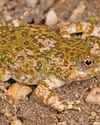
Cederberg frog discovery of 'extreme importance'
The identification of a new frog species, the Cederberg dainty frog (Cacosternum cederbergense), in South Africa in late 2024 is of the utmost importance for the preservation of biodiversity. This was according to herpetologist Tyrone Ping.
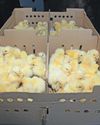
Farmers warned to look out for fraudsters and deals that seem too good to be true
Fraud happens everywhere, even in the agriculture sector, where many negotiations rely on relationships and goodwill. Glenneis Kriel reports on the situation and how to safeguard yourself against such crimes.
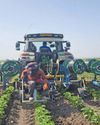
Addressing water scarcity and other agri issues through innovative irrigation
Smart irrigation helps address the challenges of water scarcity and unpredictable weather, and promotes operational efficiency, writes Eran Ossmy, president of Rivulis’ Micro Irrigation Division.
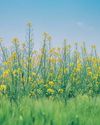
Canadian farmers expected to face trade challenges in 2025
Possible tariffs on Canadian agricultural exports have been a source of anxiety for the country since the new US government under President Donald Trump came into power in late January.
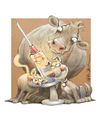
Vaccines are one of the most effective ways to combat diseases in animals
When it comes to protecting your animals’ health, vaccination stands out as one of the most crucial and effective preventive measures available, writes Boehringer Ingelheim’s Dr Michelle Enslin.

New year starts with a volatile veg market
This analysis by Absa AgriBusiness outlines market trends, highlighting the factors shaping each vegetable category's performance.